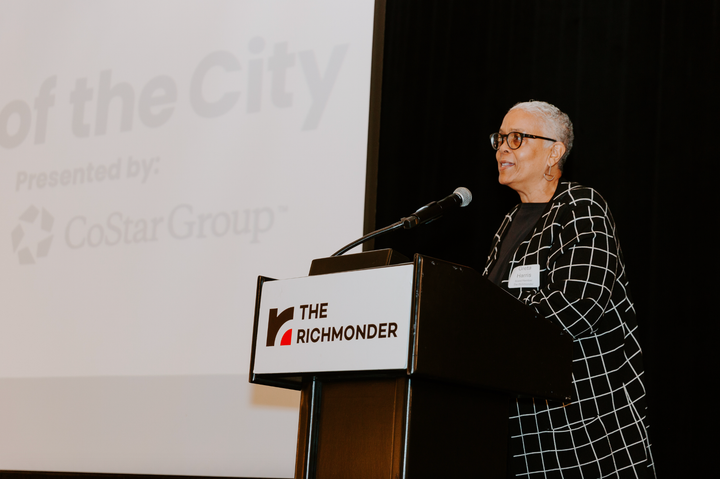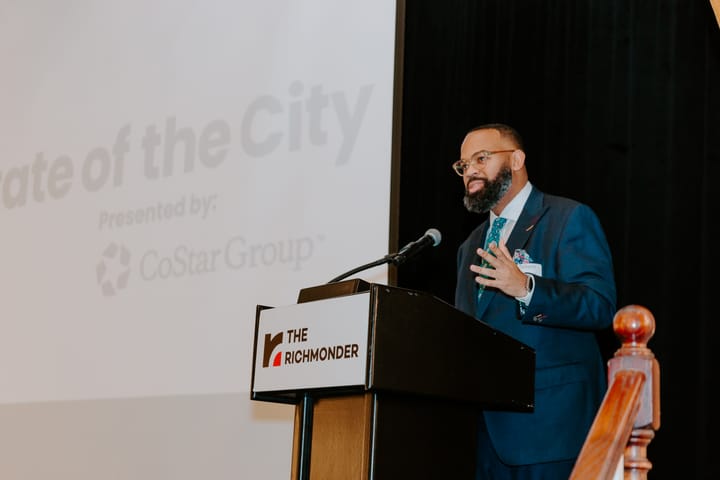
On Faith and Values: Best Thing about Walls? Knocking 'em Down
I was hanging out in my mother’s room in the rehab section of her retirement community, just a few minutes after the physical therapist had come and whisked her away for one of her twice-a-day sessions, part of her regimen of recovery after falling and breaking her hip. As I sat there thinking about how we could help Mom get more pumped up about doing her physical therapy, two nurses struck up a conversation just outside the door of her room.
I couldn’t help but overhear as they discussed another patient, a gentleman who had apparently passed away in a room down the hall just the week before. Toward the end of their chat, one mentioned that this man, on two or three separate occasions, had asked his wife to bring their adult daughter to see him because there was something he wanted to tell her he was sorry about. In a disapproving tone of voice, the nurse noted that the wife had refused to do so.
Now, I know absolutely nothing about the backstory of this man and his daughter, and perhaps keeping them from interacting was the result of previously choosing a wise and necessary boundary. But it still left me sad, because from my seat in Mom’s room it felt like a missed opportunity for a crucial family reconciliation—and reconciliation is one of the most powerful experiences we humans get to have.
Reconciliation is about relationships, which, to me, are what makes life really interesting and joyful. It’s how we attempt to repair a broken relationship by working through the anger, pain, grief, and whatever else is involved into a place of forgiveness and restoration.
As I pondered the conversation I’d just heard, I got a classic hymn sung by an ancient all-male choir stuck in my head. You probably never heard it in church: The choir was known as The Beatles and the hymn was titled “We Can Work It Out.” It includes such lyrics as “Life is very short and there’s no time for fussing and fighting, my friend” and “While you see it your way, there’s a chance that we might fall apart before too long.” While it lays out a great concept, the song is also a bit ironic, as the unreconciled conflict that led to The Beatles breakup is well known—but just another example of the way we humans roll, as we often sing (and write) a much better game than we actually play.
Perhaps the most classic reconciliation story ever was told by Jesus in the Parable of the Prodigal Son, as he tried to describe to religious leaders something of God’s nature they didn’t seem to understand. You likely know the plot: Young man gives father the ultimate psychological slap in the face by demanding his inheritance immediately, leaves for a far country, squanders everything, finds himself in desperate need, and comes crawling back to Dad, fully expecting rancor and retribution. Instead, he gets mercy and forgiveness and is restored to his family.
Sure, that’s a parable told some 2000 years ago but if you think it ain’t timeless, consider this: I know a mother who has maintained contact with a young man who drove the car that killed her daughter, and I know a father and son who are working toward reconnection after years of family dysfunction. In these very difficult real-life stories, and in others going on around us, I see the often-painful beauty and the hope that even small steps toward reconciliation can create. It doesn’t change the past, but it makes a future possible.
And it’s work we’re commissioned to be doing: Another thing Jesus did while here, described by the Apostle Paul in a letter to the citizens of Corinth, was “commit to us the message of reconciliation.” Like a lot of what Jesus has asked us to do, it isn’t easy—but the primary reason for his visit here was reconciliation, both between God and us and among ourselves.
It brings to mind that perhaps there’s something to this “everything I need to know I learned in kindergarten” stuff. Back then, the best thing about the walls we carefully built, block by block, was knocking them down. Let’s give it a shot. Maybe we can work it out.
The Richmonder is powered by your donations. For just $9.99 a month, you can join the 1,000+ donors who are keeping quality local journalism alive in Richmond.






